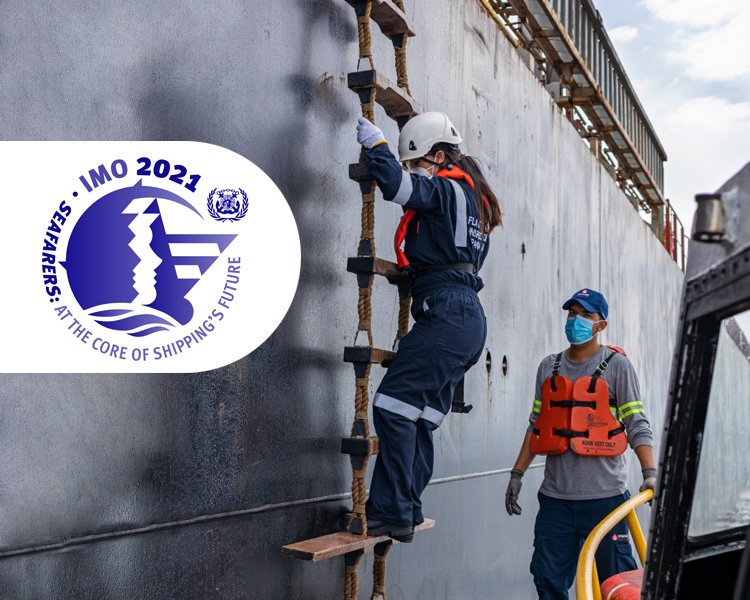A HUMANE VIEW OF MARITIME TRANSPORT
Sometimes when thinking about maritime transport, people immediately think of the ship, the port, the cargo and even the marine environment. However, this is not always the case with one key element, the people.
The emergency caused by the COVID-19 pandemic has drawn attention to the important role of people in the maritime environment. This is how the International Maritime Organization (IMO) decided that for 2021 the global maritime theme would be "Seafarers: at the core of shipping's future" with the intention of making visible the essential work of seafarers in the supply chain, and therefore in world trade, and to promote the qualified human element and the protection of human life on board ships.
However, seafarers are not the only human face that can be given to shipping. As a consequence of armed conflicts, poverty, famine, natural disasters, repression, among other causes, countless people are forced to sail unsafely with the dream of improving their living conditions. In this context, the pandemic has only deepened the factors that force people to move, aggravating the maritime migrant crisis.
In this regard, it is worth mentioning the valuable work carried out by the IMO, in its technical role, to address irregular migration by sea in order to avoid as much loss of life as possible. In this regard, an international framework has been promoted within the Organization that encourages States and the entire shipping industry to assist people in distress at sea and transfer them to safety, while working holistically with the Office of the United Nations High Commissioner for Refugees (UNHCR) and the International Organization for Migration (IOM).

The International Chamber of Shipping (ICS) has also promoted the use of the industry Guidelines for Large Scale Rescue Operations, bearing in mind that under the Safety of Life at Sea Convention (SOLAS), ships have a legal and humanitarian obligation to come to the aid of any person in distress at sea. However, the challenge of ensuring the rapid disembarkation of rescued persons is still sometimes faced.
On the other hand, since the adoption of the 2030 agenda, a transformative vision for sustainable development centered on people and the planet has been adopted. Thus, SDGs 1: End poverty; 2: Zero hunger; 3: Health and well-being; 4: Quality education; and 5: Gender equality seek to ensure that all human beings can realize their potential with dignity and equality in a healthy environment.
Therefore, it cannot be forgotten that international maritime transport is indispensable for economic growth and sustainable development, and consequently, working to promote safe, efficient and sustainable maritime transport ultimately contributes enormously to the goal of a more prosperous, equitable, inclusive and humanitarian world for all nations and peoples.
By: Natalia Suárez Triviño
DIMAR- COLOMBIA